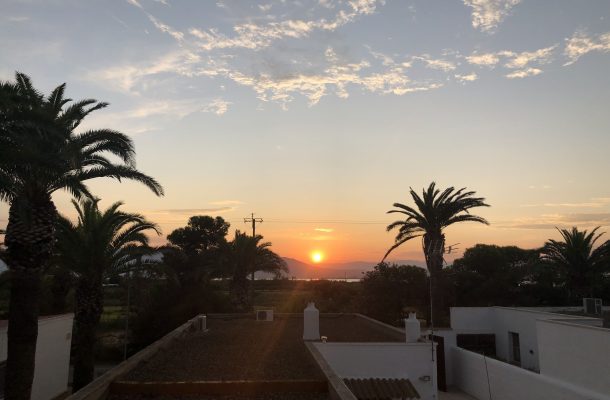From fight to fiesta

“Why Spain?” my friends asked me. Their question was understandable. I had only traveled to Spain once before – a one-stop trip to Barcelona – but that had been enough to spark a sudden kinship with this country.
Call it wanderlust if you like, but after four wonderful weeks in this UNESCO heritage paradise, I was finally able to provide an answer.
From its pristine mountains to its buzzing cities, the rugged coastline and everything in between, Spain is challenged by pressing socio-cultural and governmental issues. A crippling economic crisis and extreme unemployment rates, environmental pollution and a perpetually corrupt political system make up the daily struggles of people like you and me in Spain.
Homage to Catalonia
Located between the mountains and the sea, the historical, beautiful and culturally rich city of Barcelona is now a political playground where Catalonian Separatists advocating for independence clash with far-right demonstrators.
In Barcelona and other Catalan towns and cities, many balconies or windows are decorated by different kinds of flags representing political preferences in the Catalonian Independence Struggle.
The ‘Senyera’, the official Catalan flag with four red stripes on a yellow background, is unsurprisingly the most common of flags to be spotted, symbolising a transparent preference for independence. But many other flags with respective meanings exist.
In these rather hectic times, when political issues consume all aspects of the daily life of Catalan people, participating in ‘Balcony politics’ has become a free and non-violent way of expressing a political and social opinion.
This October, the Spanish Supreme Court imprisoned nine Catalan leaders for organising a referendum on self-determination in Catalonia, whilst others escaped into exile to avoid persecution for exercising their political views.
This growing siege against free speech in Spain negates basic human rights and was a challenging, eye-opening experience for me, coming as I do from a liberal nation which allows self-expression in all aspects of life.
La Tomatina
The current turmoil and political unrest in the Catalonia is a fraction of the disarray occurring elsewhere, but it remains a country filled with friendly strangers that live to the fullest through fiestas, music, red wine and food.
Spain is internationally recognised for its culture and strong traditions. Spectacular fiestas and celebrations fill the country with a zest for life which visitors can enjoy in every corner of Spain throughout the entire year.
Every August, for example, thousands of thrill seekers – and truckloads of tomatoes – amass in the small town of Buñol to participate in Spain’s messiest festival: La Tomatina.
At precisely 12pm, in the heart of the town, a heart-stopping siren rings to mark one hour of energetic tomato throwing. Excitement and frenzy fills the air as 120 tonnes of ripe tomatoes flow onto the street. It sounds great fun but the reality of the situation soon hits you as 20,000 people cram into a narrow street waiting for a series of trucks to roll in.
The fear of being pushed and shoved to the floor increases with the tight proximity of people squashed together. The strength at which a tomato is thrown in such a short distance is surprisingly painful, and then, the siren rings again after 60 minutes to bring this organised chaos to an end.
One battle is then traded for another as the revellers quickly search for locals waiting in their houses with heavy duty hoses, shampoo and soap to wash clean the thousands of people that painted their town red with tomatoes.
True to their reputation, it was amazing to witness at first-hand the welcoming hospitality and conviviality of the Spanish people to strangers. They seem able to create genuine relationships with whoever crosses their path.
Que viva España
Few other countries are able to offer the wealth of intoxicating experiences to be found in Spain. It is special because of the juxtaposition of fight and fiesta in the nation. Less than 400 km from our tomato fight, people were battling in the streets of Barcelona for political freedom, showing true grit and spirit.
So, after one month in the country, it seemed easy to answer that old-time question, “Why Spain?”
Everyone is born in their country through an accident of fate. When we are more mature and travel, we may visit a country and suddenly feel a kinship with that country, which may later turn into love.
This does not mean we lose our love for the country of our native birth, but this new love may be just as profound. That is why I love Spain. A country that doesn’t require museums because the country itself is a open book, telling stories of the past, inspiring action in the present and creating a better tomorrow.

Leila graduated from UTS with a Bachelor of Global Studies, majoring in Communication and Languages (Italian). During her studies, she participated in the exchange program and studied in Milan, Italy. She is passionate about Australian foreign policy and development and currently interns with Global Access Partners as a research assistant.












